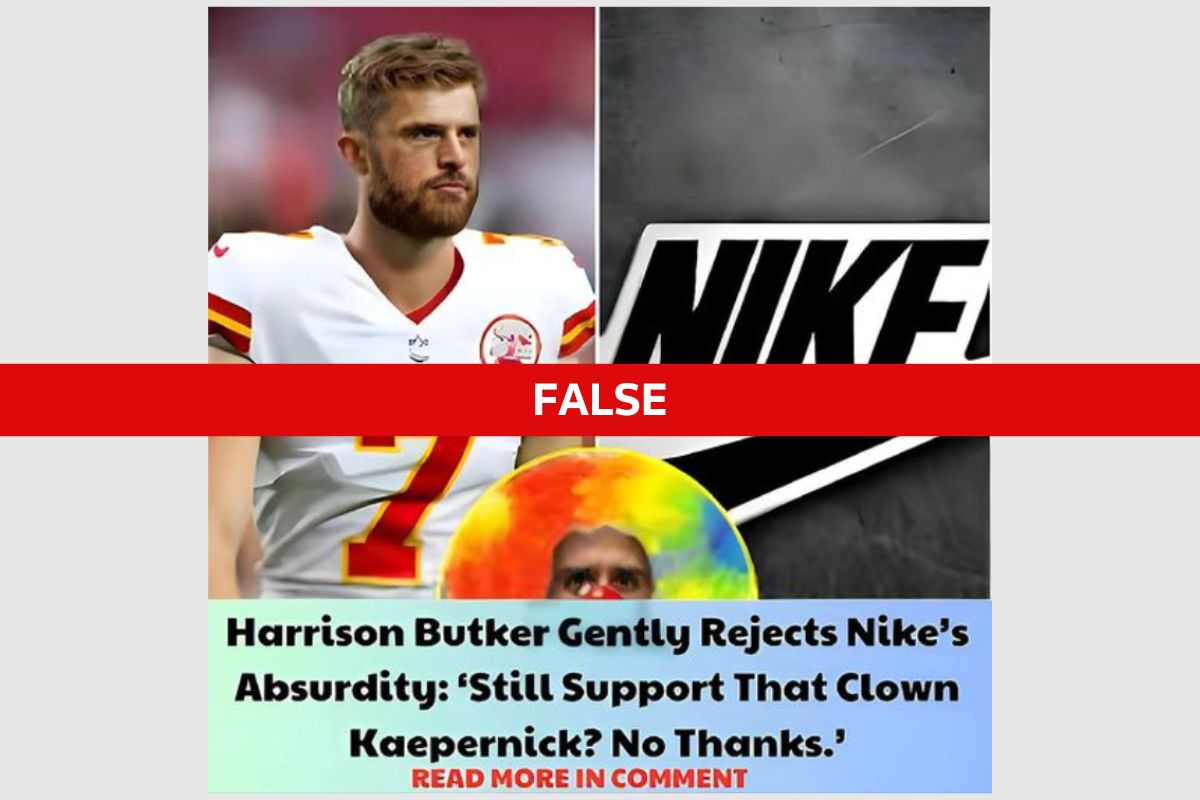In a bold move that has captured headlines and ignited passionate debate, NFL kicker Harrison Butker has publicly rejected a lucrative endorsement deal with Nike, citing the company’s support for Colin Kaepernick as a primary reason. This decision has not only put Butker in the spotlight but has also reignited discussions about social justice, athlete activism, and corporate responsibility in sports.
Butker, known for his precision on the field and his thoughtful approach off it, made waves when he announced his stance during a recent press conference. “I respect everyone’s right to express themselves, but I felt that supporting a brand that aligns with certain political views didn’t sit right with me,” he stated. His comments reflect a growing trend among athletes who are increasingly aware of the implications of their endorsements and the messages they send to their fans.
The Kaepernick saga has been a polarizing topic since the former quarterback took a knee during the national anthem to protest racial injustice and police brutality. While many have hailed Kaepernick as a hero and a voice for the voiceless, others view his actions as controversial, leading to heated discussions across the sports community and beyond. By distancing himself from Nike, Butker is positioning himself firmly in this ongoing debate, choosing to prioritize his personal beliefs over financial gain.
Reactions to Butker’s decision have been swift and varied. Supporters praise him for taking a stand and being true to his convictions, highlighting the importance of personal integrity in an industry often driven by profit. On social media, fans have rallied behind him, celebrating his choice as an example of authenticity in a world where athletes frequently feel pressured to conform to corporate narratives.
Conversely, critics argue that Butker’s rejection of Nike represents a missed opportunity for dialogue and change. They point out that engaging with a brand that supports Kaepernick could have provided a platform for discussing crucial social issues. Some believe that athletes have a responsibility to use their influence to promote awareness and understanding, regardless of personal beliefs.
This controversy has sparked deeper conversations about the role of sports in society. Should athletes be expected to align with specific causes, or is it their prerogative to choose who they partner with based on personal values? As Butker’s stance resonates through the NFL and beyond, it raises questions about the intersection of sports, politics, and social justice.
As the story unfolds, it’s clear that Butker’s decision is more than just a rejection of a brand; it’s a reflection of the complex landscape athletes navigate today. In a world where every choice is scrutinized, his move challenges both fans and fellow players to consider what they stand for and how they choose to express their beliefs.
In the end, Harrison Butker’s choice may serve as a catalyst for a broader discussion on the impact of athlete activism and corporate affiliations. Whether viewed as a principled stand or a controversial affront, one thing is certain: sports will continue to be a powerful arena for social dialogue, and athletes like Butker are at the forefront of this evolving narrative.








